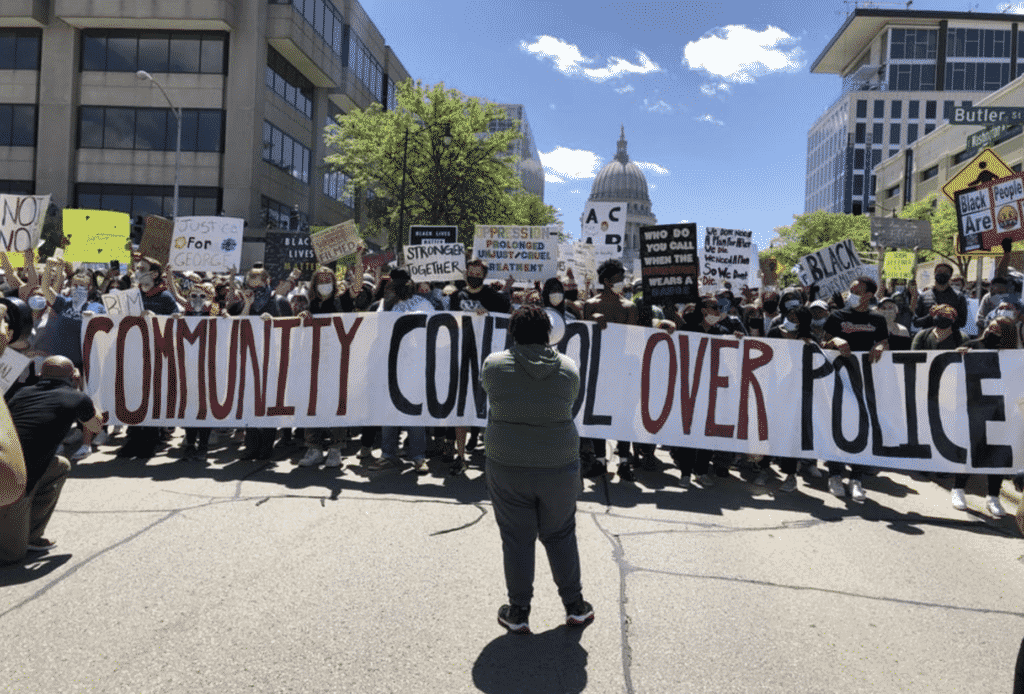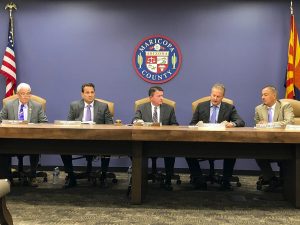When Dr. Martin Luther King Jr. took to the steps of the Lincoln Memorial in 1963 to deliver his famous “I Have a Dream” speech, he offered Americans, of all races, a compelling vision of a society no longer prejudiced by race. He envisioned a country where citizens are judged “by the content of their character” and not “the color of their skin.”
But to listen to today’s most prominent “antiracists,” King’s dream is what stands in the way of racial justice in 21st-century America. The result is the return of legal racial discrimination.
In Madison, Wisconsin, the famously leftist city government recently established a Police Civilian Oversight Board in response to activists concerned with police relations. The board’s mission is rather vague: “provide input,” “engage in community outreach,” and “make policy-level recommendations.” What the board is not vague about is who is allowed to participate.
Six of the board’s 11 members must be black. No Asians, American Indian, Hispanics or Latinos, or Whites can sit in those six seats: “Blacks Only,” to use the terminology of the City’s Alder Workgroup, which explicitly mandated “50 percent Black members.”
Furthermore, one board seat is reserved for an Asian; one board seat is reserved for an American Indian; one board seat is reserved for someone identifying as “Latinx.” Finally, one board seat is reserved for a “member of the LGBTQ community,” although the city presumably would allow someone to be both a minority and LGBTQ at the same time.
Heralded as a serious effort at “equity” and “inclusion,” Madison’s Police Civilian Oversight Board intentionally discriminates based on racial categories—a practice with an ugly and pernicious past. This is also the vision of America’s most prominent “antiracists.” For example, in his 2019 book, “How to be an Antiracist,” best-selling author Ibram X. Kendi is explicit that, “The only remedy to past discrimination is present discrimination. The only remedy to present discrimination is future discrimination.”
Unfortunately, Madison is not alone in this kind of legal racism. California now imposes racial quotas on private companies’ boards. NASDAQ is following suit. Many private companies, such as Delta Airlines and Wells Fargo, are promising to impose quotas.
Regardless of the intent or the current zeitgeist on racial justice, intentional race discrimination remains illegal, unconstitutional, and contrary to basic American values. U.S. Supreme Court Justice Clarence Thomas has written that “racial paternalism and its unintended consequences can be as poisonous and pernicious as any other form of discrimination.”
Our Constitution’s aim of a colorblind society, embodied in the Equal Protection Clause, was “[p]urchased at the price of immeasurable suffering,” and any racial classifications, whether for good intentions are not, “have a destructive impact on the individual and society” and “demean[ ] us all,” according to Justice Thomas, who is black.
Since 1978, the U.S. Supreme Court has struck down racial quotas every time they have reared their ugly head. Given the energy and momentum to establish new racial quotas, however, the courts can expect to be tested in new ways on their commitment to justice and equal protection.
In Madison, seven residents, represented by attorneys from the Wisconsin Institute for Law and Liberty, have challenged the unconstitutional racial quotas. If the city does not withdraw its ordinance and re-constitute the board with legal criteria, the city can expect a lawsuit. If the current cultural climate remains, it won’t be the last.
This all adds up to a treacherous moment for King’s dream. While slavery and Jim Crow’s legacy have not been undone easily, America has made important progress, although halting and stumbling at times, since the 1960s.
But resurrecting legal racial discrimination in the name of progress is no progress at all. It may be the preferred strategy of the “antiracists” who have rocketed to fame and credibility among many in elite American institutions, but it represents a dead-end for a diverse country still committed to equality before the law and the proposition that “all men are created equal.”






